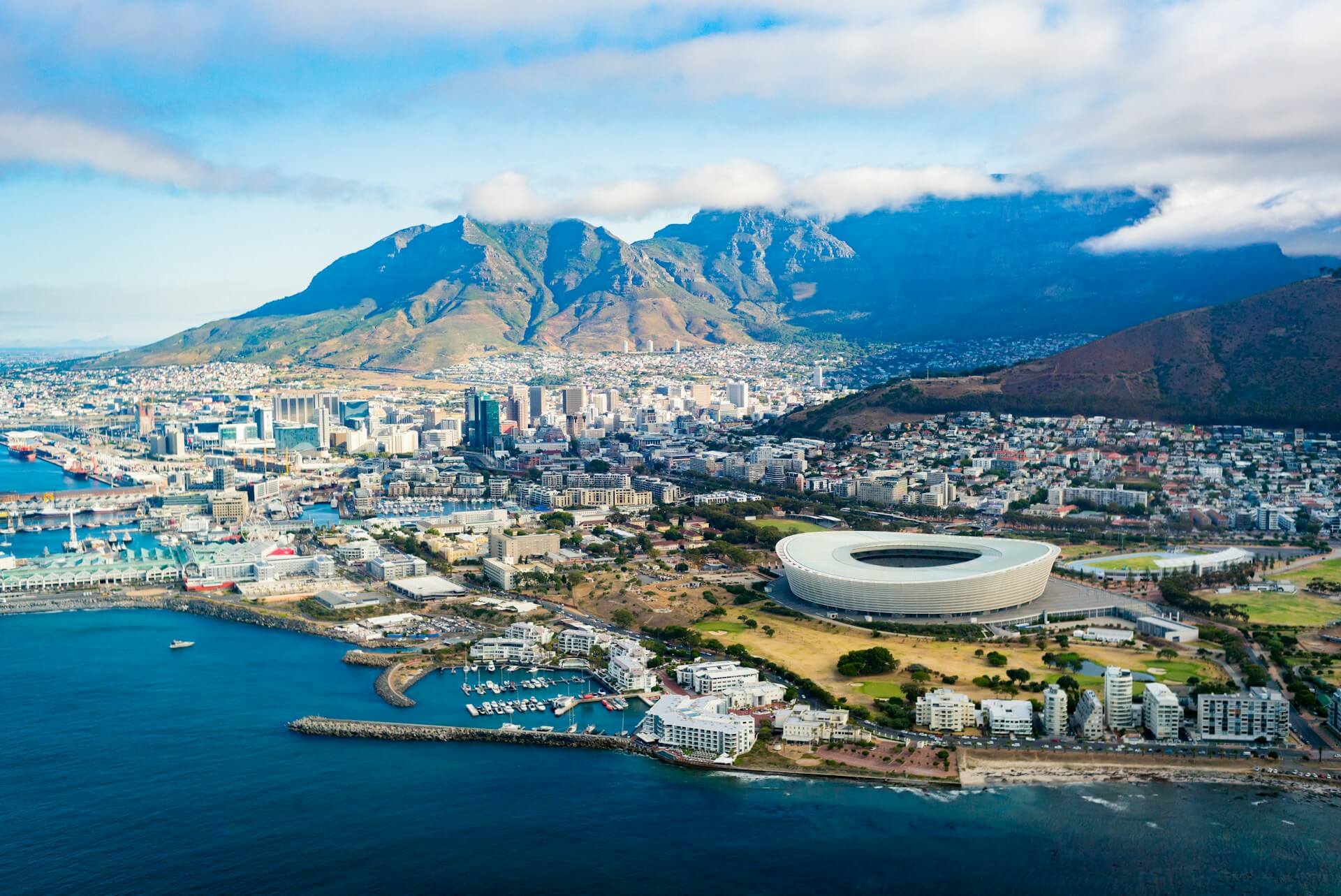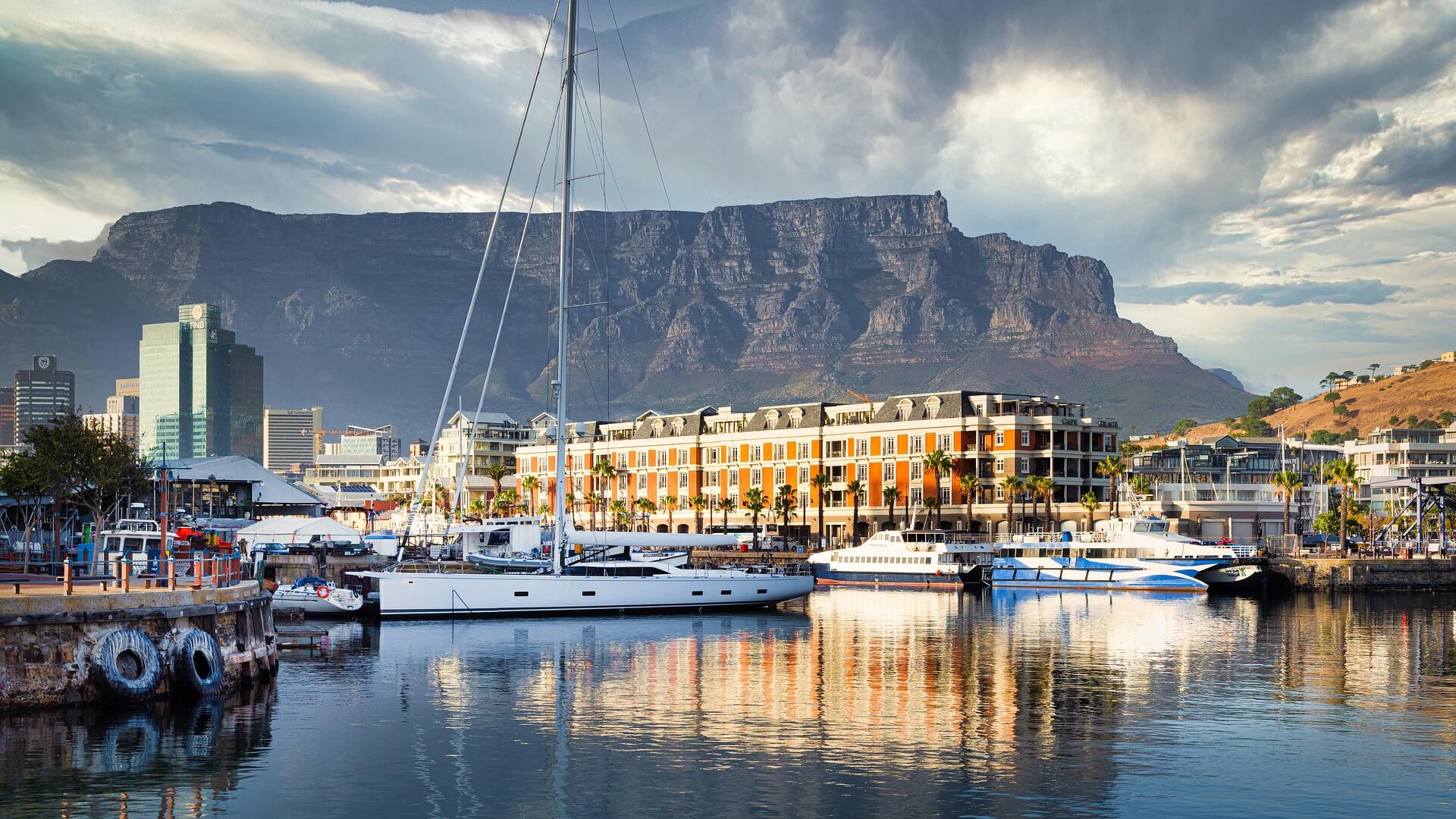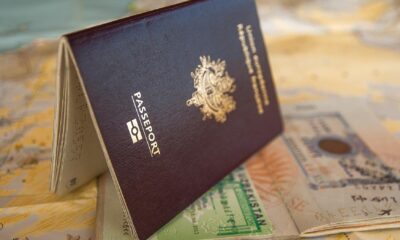1. Introduction
Quick Facts About Cape Town: Everything You Need to Know Before You Go

When planning a trip to Cape Town, South Africa, it helps to start with the basics. Known as the Mother City, Cape Town is one of the most popular destinations in Africa, attracting millions of travelers each year with its breathtaking scenery, rich history, and vibrant culture.
This guide breaks down the quick facts about Cape Town into easy-to-understand sections, giving you a clear picture of what to expect when you visit. Whether you’re a first-time traveler or considering relocating, these insights will help you feel more prepared.
1. Country: South Africa
Cape Town is located at the southern tip of South Africa, a country celebrated for its natural wonders, wildlife, and cultural diversity. As the oldest city in the nation, Cape Town is often called the “Mother City.”
South Africa is home to 11 official languages, incredible safari destinations, and a coastline that stretches for thousands of kilometers. Cape Town is one of its jewels, combining mountains, beaches, and vibrant neighborhoods into a single destination.
2. Population: Around 4.6 Million
The Cape Town metropolitan area is home to approximately 4.6 million people, making it the second most populated city in South Africa after Johannesburg.
Cape Town’s residents reflect the country’s multicultural identity. You’ll meet people from diverse backgrounds, including those who speak Afrikaans, isiXhosa, and English, as well as many expats and digital nomads who have chosen Cape Town as their home.
This diversity adds to the city’s unique cultural blend—from food and music to festivals and traditions.
3. Time Zone: South Africa Standard Time (SAST)
Cape Town operates on South Africa Standard Time (SAST), which is GMT+2. Importantly, South Africa does not observe daylight savings time.
For travelers:
- From Europe, Cape Town is often just one or two hours ahead, making it a convenient holiday destination.
- From the United States, Cape Town is typically 6–9 hours ahead depending on the coast.
- From Asia and Australia, time differences can range from 5–9 hours.
This makes Cape Town an excellent hub for remote workers and digital nomads, as working hours overlap with many global regions.
4. Currency: South African Rand (ZAR)
The local currency in Cape Town is the South African Rand (ZAR). It is divided into 100 cents, and you’ll often see it written as “R.” For example, a coffee might cost R35.
- Exchange Rate: The Rand tends to be weaker against the US Dollar, Euro, and British Pound, which makes Cape Town a very affordable destination for international travelers.
- Payment Options: Credit and debit cards are widely accepted, even for small purchases. Mobile payments like Apple Pay and SnapScan are also common.
- Cash: Carry some Rand for markets, taxis, and small shops that may not accept cards.
This affordability is one of the key reasons Cape Town is considered a budget-friendly yet luxury-capable travel destination.
5. Languages: English, Afrikaans, and isiXhosa
Cape Town is a multilingual city. The three most commonly spoken languages are:
- English – widely spoken and the main language of business, tourism, and education.
- Afrikaans – derived from Dutch, common in the Western Cape region.
- isiXhosa – one of South Africa’s indigenous languages, recognized by its distinctive “click” sounds.
As a visitor, you’ll have no problem communicating in English across Cape Town. However, learning a few words of Afrikaans or isiXhosa is a great way to connect with locals.
6. Famous For: Landmarks & Attractions
Cape Town’s global reputation comes from its world-famous attractions and natural beauty. Here are some highlights:
- Table Mountain: An iconic flat-topped mountain overlooking the city, accessible by cable car or hiking trails.
- Robben Island: A UNESCO World Heritage Site where Nelson Mandela was imprisoned.
- Cape Point: Located in the Cape of Good Hope Nature Reserve, where the Atlantic and Indian Oceans meet.
- Beaches: From trendy Camps Bay to family-friendly Muizenberg, Cape Town offers some of the most beautiful beaches in the world.
- Wine Estates: Stellenbosch, Franschhoek, and Constantia produce internationally acclaimed wines.
These attractions, combined with Cape Town’s cultural vibrancy, make it a city you’ll never forget.
7. Climate: Mediterranean Perfection
Cape Town enjoys a Mediterranean climate, meaning warm, dry summers and mild, wet winters.
- Summer (Nov–Mar): Hot and sunny, ideal for beaches, hiking, and outdoor festivals.
- Autumn (Apr–May): Mild weather and wine harvest season.
- Winter (Jun–Aug): Cooler with rainfall, perfect for whale watching and exploring museums.
- Spring (Sep–Oct): Flowers bloom across the Western Cape, especially in the nearby Namaqualand.
With an average of 3,100 hours of sunshine a year, Cape Town is a year-round destination.
8. Transportation & Accessibility
Getting around Cape Town is relatively easy, with options to suit every traveler.
- Cape Town International Airport: The city’s main gateway, serving flights from across Africa, Europe, the Middle East, and Asia.
- Public Transport: MyCiTi bus system connects the airport to the city and covers major neighborhoods.
- Car Rentals: Popular for exploring the Cape Peninsula, wine regions, and Garden Route.
- Ride-Hailing: Uber and Bolt are widely available and affordable.
Accessibility, combined with Cape Town’s compact size, makes it easy to explore both the city and surrounding attractions.
9. Safety Tips
Like many major cities, Cape Town has safe areas and others where travelers should take precautions.
- Stick to tourist-friendly neighborhoods such as the CBD, Camps Bay, and Sea Point.
- Use Uber or Bolt rather than walking late at night.
- Avoid displaying valuables in public.
By following standard urban safety practices, you’ll find Cape Town a welcoming and enjoyable destination.
10. Cape Town as a Gateway to Africa
Cape Town isn’t just a destination—it’s also a launchpad for exploring Southern Africa. From here, you can easily access:
- The Garden Route with its coastal towns and national parks.
- Namibia, with its deserts and dunes.
- Kruger National Park, South Africa’s premier safari destination.
- Victoria Falls, a short flight away in Zimbabwe or Zambia.
For many travelers, Cape Town is the perfect introduction to the African continent.
Final Thoughts
These quick facts about Cape Town highlight why the Mother City is loved by travelers worldwide. With its rich culture, affordable prices, natural wonders like Table Mountain and Cape Point, and easy accessibility, Cape Town is a city that leaves a lasting impression.
Whether you’re coming for a week of sightseeing, a month of remote work, or planning to relocate, knowing these essentials ensures you arrive prepared and excited to explore.

1. Introduction
Discover Cape Town: Location, Lifestyle & Why It’s One of the World’s Best Cities

Welcome to Cape Town, one of the most beautiful, diverse, and inspiring cities on the planet. Whether you’re dreaming of an unforgettable holiday, planning a digital-nomad lifestyle, or considering a permanent relocation, Cape Town offers a rare combination of natural beauty, modern city living, cultural richness, and opportunity.
Often described as Africa’s most scenic city, Cape Town sits at the southern tip of South Africa, where dramatic mountains meet the ocean and vibrant neighborhoods blend history, creativity, and innovation. It’s a city that invites exploration—and rewards those who choose to stay.
In this guide, you’ll discover exactly what Cape Town is, where it’s located, and why it continues to attract travelers, entrepreneurs, remote workers, retirees, and families from around the world.
What Is Cape Town?
Cape Town is the legislative capital of South Africa and the second-largest city in the country. It is globally recognized for its breathtaking landscapes, multicultural population, world-class food scene, and relaxed yet sophisticated lifestyle.
Founded in 1652 as a supply station for ships traveling between Europe and Asia, Cape Town has evolved into a modern global city with deep historical roots. Today, it is a hub for tourism, technology, education, creative industries, and international business.
What truly sets Cape Town apart is how seamlessly it blends:
- Urban sophistication
- Untamed natural beauty
- Rich cultural heritage
- A strong sense of community and creativity
Few cities in the world allow you to work in a modern office, hike a mountain during lunch, and watch the sunset over the ocean—all in the same day.
Where Is Cape Town Located?

Cape Town is located in the southwestern corner of South Africa, within the Western Cape province. The city sits on the Cape Peninsula, a narrow strip of land surrounded by two oceans:
- The Atlantic Ocean to the west
- The Indian Ocean to the southeast
This unique geographic position gives Cape Town its dramatic coastline, mild Mediterranean climate, and spectacular scenery.
Key Geographic Highlights
- Table Mountain rises directly behind the city center, creating one of the world’s most iconic skylines
- Cape Town is approximately 1,400 km (870 miles) southwest of Johannesburg
- It lies close to the meeting point of the Atlantic and Indian Oceans near Cape Point
This location makes Cape Town feel both connected and secluded—a world-class city with a laid-back, coastal rhythm.
Why Cape Town Is an Amazing City to Visit
Cape Town consistently ranks among the top travel destinations in the world, and for good reason. The city offers something for every type of traveler.
1. World-Famous Natural Beauty
From towering mountains to white-sand beaches, Cape Town’s landscapes are simply unforgettable. Highlights include:
- Table Mountain hikes and cableway views
- Cliffside drives along Chapman’s Peak
- Penguin colonies at Boulders Beach
- Lush vineyards in nearby Stellenbosch and Franschhoek
Nature isn’t a side attraction here—it’s part of everyday life.
2. Stunning Beaches for Every Mood
Cape Town’s beaches are as diverse as the city itself:
- Trendy and energetic beaches like Camps Bay
- Wind-powered beaches for surfers and kitesurfers
- Quiet coves perfect for sunset walks
Whether you love swimming, surfing, or simply relaxing with ocean views, Cape Town delivers.
3. A Food and Wine Capital
Cape Town is a global food destination, offering:
- Award-winning fine dining
- Affordable, high-quality local cuisine
- World-renowned wine estates just minutes away
The city’s culinary scene reflects its cultural diversity—African, European, Asian, and contemporary global flavors all come together here.
4. Rich Culture and History
Cape Town’s story is complex, powerful, and deeply human. Visitors can explore:
- Historic neighborhoods like Bo-Kaap
- Museums dedicated to freedom, resilience, and creativity
- Art galleries and cultural markets
This depth gives Cape Town a soul that goes far beyond its postcard beauty.
Why Cape Town Is an Incredible Place to Relocate To

Beyond tourism, Cape Town is increasingly becoming a top relocation destination for professionals, entrepreneurs, freelancers, and retirees.
1. A High Quality of Life
Cape Town offers an exceptional lifestyle:
- Modern infrastructure
- Access to healthcare and education
- Outdoor living year-round
- A strong work-life balance
You can enjoy world-class experiences at a cost that is often lower than major cities in Europe, North America, or Australia.
2. Ideal for Remote Work and Digital Nomads
Cape Town has rapidly emerged as a remote-work hotspot:
- Reliable internet and coworking spaces
- A growing tech and startup ecosystem
- Time zone compatibility with Europe and parts of Asia
It’s no surprise that many freelancers and online entrepreneurs choose Cape Town as their home base.
3. Welcoming, Diverse Communities
Cape Town is one of Africa’s most culturally diverse cities. Expats, locals, creatives, and entrepreneurs coexist in vibrant neighborhoods, making it easier for newcomers to feel at home.
4. Climate That Encourages Outdoor Living
With a Mediterranean climate, Cape Town enjoys:
- Warm, dry summers
- Mild, rainy winters
- Plenty of sunshine year-round
This climate supports an active, healthy lifestyle that many people actively seek when relocating.
Neighborhoods That Define Cape Town’s Character
Cape Town is not just one city—it’s a collection of unique neighborhoods, each with its own personality.
- City Bowl – Urban living beneath Table Mountain
- Atlantic Seaboard – Luxury coastal living and beaches
- Southern Suburbs – Family-friendly, leafy, and relaxed
- Northern Suburbs – Affordable housing and growing business hubs
This variety means there’s a place for almost every lifestyle and budget.
Cape Town’s Global Reputation
Cape Town consistently appears on:
- “Best Cities in the World” lists
- “Top Places to Visit” travel rankings
- “Best Cities for Remote Work” guides
Its reputation continues to grow as more people discover that Cape Town is not just a destination—but a place to build a life.
Final Thoughts
Cape Town is more than a city—it’s an experience. It inspires creativity, encourages balance, and offers freedom in a way few places can. Whether you’re visiting for a week or relocating for years, Cape Town has a way of making people feel alive, connected, and optimistic about what’s possible.
If you’re looking for a destination that blends natural beauty, opportunity, culture, and lifestyle, Cape Town deserves a top spot on your list.
1. Introduction
Why Visit Cape Town? Explore South Africa’s Mother City

Cape Town is more than just a destination—it’s an experience. Known as the Mother City of South Africa, this remarkable place is where rugged mountains meet turquoise oceans, where history weaves seamlessly with modern culture, and where every sunrise promises adventure.
Few cities in the world can rival Cape Town’s blend of natural beauty, cultural diversity, and vibrant lifestyle. Whether you’re a first-time visitor eager to see iconic landmarks or a traveler returning to explore hidden gems, Cape Town offers something unforgettable.
In this guide, we’ll dive into the reasons why Cape Town should be at the top of your travel list, covering landscapes, culture, food, history, adventure, and lifestyle.
1. Breathtaking Natural Beauty
Cape Town is consistently ranked among the most beautiful cities in the world—and for good reason. Its dramatic landscapes create a postcard-perfect setting from nearly every angle.
- Table Mountain: Towering over the city, this natural wonder is one of the New Seven Wonders of Nature. Hike to the summit or take the cable car for panoramic views stretching across the Cape Peninsula.
- Beaches: From the trendy Camps Bay to the penguin-filled shores of Boulders Beach, Cape Town boasts some of the best beaches in South Africa.
- Cape Point & Cape of Good Hope: Located within the Table Mountain National Park, this rugged coastline is a must-visit for dramatic scenery and wildlife sightings.
Simply put, nature is everywhere—you can wake up in the city center and be at a mountain, vineyard, or beach within 30 minutes.
2. A Rich Cultural Mosaic
Cape Town’s cultural identity is shaped by centuries of global influences. Known as a melting pot of traditions, the city celebrates diversity through food, art, and architecture.
- Bo-Kaap: Famous for its colorful houses and Cape Malay heritage, this neighborhood is a photographer’s dream and a cultural treasure.
- Art & Design: Visit the Zeitz MOCAA, Africa’s largest museum of contemporary art, or browse local craft markets showcasing handmade jewelry, textiles, and ceramics.
- Music & Dance: Jazz, gqom, and traditional African rhythms fill the city’s nightlife and festivals.
This cultural richness makes Cape Town more than just a scenic stop—it’s a place where you can truly connect with the soul of South Africa.
3. World-Class Food & Wine
Cape Town is a foodie’s paradise. Its dining scene combines traditional flavors with international flair.
- Cape Malay Cuisine: Spiced curries, samosas, and bobotie reflect Cape Town’s Malay heritage.
- Seafood: Fresh catches like snoek, kingklip, and calamari are menu staples across coastal restaurants.
- The Cape Winelands: Just 45 minutes from the city, Stellenbosch, Franschhoek, and Paarl produce some of the best wines in the world. Wine tastings here often come with mountain backdrops and gourmet pairings.
From fine dining to street food markets, Cape Town satisfies every palate.
4. Adventure Around Every Corner
For adrenaline seekers, Cape Town is an outdoor playground.
- Surfing: Muizenberg is one of the best beginner surfing spots in the world.
- Shark Cage Diving: Experience the thrill of coming face-to-face with great white sharks in Gansbaai.
- Paragliding: Soar off Signal Hill for aerial views of the city.
- Hiking & Trails: Lion’s Head and Devil’s Peak are favorites for sunrise or sunset hikes.
Adventure in Cape Town is not limited to extreme sports—you can also enjoy kayaking, sailing, or whale watching in nearby Hermanus.
5. Deep & Complex History
Cape Town is home to some of the most important historical sites in South Africa.
- Robben Island: A UNESCO World Heritage Site where Nelson Mandela was imprisoned for 18 years. Guided tours by former inmates make this an emotional and educational experience.
- District Six Museum: Learn about the forced removals during apartheid and the resilience of the local community.
- Castle of Good Hope: The oldest surviving colonial building in South Africa.
Exploring these sites offers travelers a deeper understanding of the country’s struggles, triumphs, and resilience.
6. A City of Neighborhoods
Cape Town is a collection of unique neighborhoods, each with its own vibe.
- CBD (Central Business District): Bustling with markets, rooftop bars, and cultural landmarks.
- Camps Bay & Clifton: Known for luxury, nightlife, and sunset beach views.
- Woodstock: A hub for street art, hip cafés, and design studios.
- Kalk Bay: A charming fishing village with quirky shops and seafood restaurants.
Whether you’re seeking luxury or local authenticity, Cape Town has a neighborhood to match your style.
7. Affordability & Accessibility
Compared to many global destinations, Cape Town offers excellent value for money.
- Budget Travelers: Hostels, public transport, and street food make it possible to explore for $30–$50 a day.
- Mid-Range Travelers: Boutique hotels, car rentals, and wine tours average $70–$120 a day.
- Luxury Travelers: 5-star lodges, private tours, and fine dining start from $200+ a day.
This makes Cape Town attractive for every budget, from backpackers to honeymooners.
8. Relocating to Cape Town
Many visitors fall in love with Cape Town and decide to stay longer. The city has a growing community of expats, digital nomads, and entrepreneurs.
- Lifestyle: Laid-back yet cosmopolitan, with easy access to nature and urban amenities.
- Cost of Living: Lower than in Europe or North America, especially for dining and rentals.
- Work Opportunities: Co-working spaces, tech start-ups, and creative industries thrive here.
- Connectivity: Reliable internet, international flights, and modern infrastructure.
For anyone considering relocation, Cape Town provides both lifestyle benefits and professional opportunities.
9. Year-Round Sunshine & Seasons
Cape Town enjoys a Mediterranean climate.
- Summer (Nov–Mar): Hot, sunny, perfect for beaches and outdoor activities.
- Autumn (Apr–May): Mild weather, fewer crowds, and wine harvest season.
- Winter (Jun–Aug): Cooler with rain, ideal for indoor attractions and whale watching.
- Spring (Sep–Oct): Blooming flowers and crisp hiking conditions.
No matter the season, Cape Town has something to offer travelers.
10. A Gateway to Southern Africa
Cape Town is not just a destination—it’s a starting point for exploring Southern Africa. From here, you can easily access:
- The Garden Route (Knysna, Plettenberg Bay, Tsitsikamma)
- Kruger National Park safaris (via Johannesburg flights)
- Namibia’s deserts and dunes
- Zimbabwe and Zambia for Victoria Falls
This makes Cape Town an ideal hub for broader African adventures.
Why You’ll Love Cape Town
Cape Town is more than a city—it’s an adventure, a cultural journey, and a sensory delight. From the majestic Table Mountain to the vibrant streets of Bo-Kaap, from historic Robben Island to world-renowned wineries, the city offers experiences that stay with you long after you leave.
Whether you’re visiting for a week or planning to make it your new home, Cape Town promises something extraordinary. This is a place where you don’t just travel—you connect, learn, and fall in love.
-

 5. Top Attractions6 months ago
5. Top Attractions6 months agoCape Point & Cape of Good Hope: A Complete Guide
-

 5. Top Attractions6 months ago
5. Top Attractions6 months agoBoulders Beach & The African Penguin Colony: A Cape Town Must-See
-

 3. Getting There & Around5 months ago
3. Getting There & Around5 months agoRenting a Car vs. Using Rideshare Apps in Cape Town
-

 3. Getting There & Around5 months ago
3. Getting There & Around5 months agoPublic Transport in Cape Town: MyCiTi Bus, Trains & Taxis
-

 2. Planning Your Trip5 months ago
2. Planning Your Trip5 months agoVisa Requirements & Entry Guide for Cape Town, South Africa
-

 3. Getting There & Around5 months ago
3. Getting There & Around5 months agoAirport Transfers & Transportation Options in Cape Town
-

 2. Planning Your Trip5 months ago
2. Planning Your Trip5 months agoCape Town Airport Arrival Guide: What to Expect When You Land in South Africa
-

 2. Planning Your Trip5 months ago
2. Planning Your Trip5 months agoCurrency, Costs & Budget Tips for Cape Town, South Africa



















